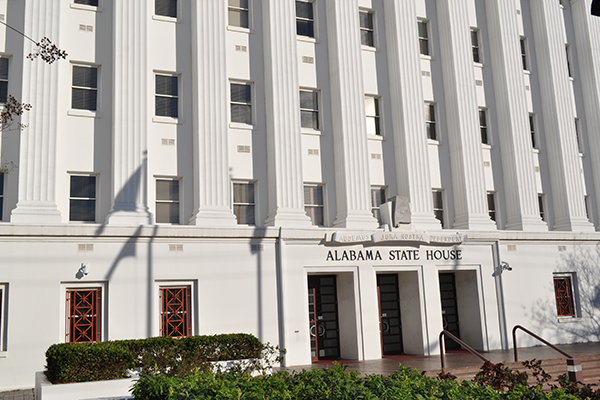A bill passed Feb. 8 in the Alabama Senate seeks to clarify that using a cellphone to secretly take pictures of another person’s private areas is unacceptable.
Senate Bill (SB) 57 would criminalize video voyeurism, the practice of taking photographs or videos of the intimate areas of another person who is unaware of what is happening.
Technology has created a market for “upskirt” pictures, taken by sneaking a cellphone under a woman’s skirt and capturing still or video images. Upskirt photos, along with “downblouse” photos, are often posted on pornographic websites or in online videos.
Alabama currently has no law against such practices. SB 57 would change that. Sen. Clyde Chambliss sponsored the bill in response to two cases in his district.
In one incident a man was charged with attempted criminal surveillance after taking photographs of two women on separate occasions as they shopped in stores in Prattville.
One of the women had just come from church and was wearing a dress when she stopped at Wal-Mart to shop. She said she thought the man was looking for something on a lower shelf and then realized he was recording up her skirt.
The second victim was shopping at Lowe’s when the man recorded her.
‘No excuse’
As reported by the Montgomery Advertiser, Prattville municipal Judge Louis Colley said there was “no excuse” for the man’s behavior and expressed regret that under existing Alabama law, there were no grounds for criminal charges.
A 2012 state law prohibits spying on someone in an obviously private place such as a restroom stall but the aisles of a store are not considered private places.
SB 57 passed the Senate on a 27–0 vote and now goes to the House of Representatives.
Abortion, alcohol bills
Several other bills are being monitored by Alabama Citizens Action Program (ALCAP).
House Bill (HB) 52 requires abortion clinics to refund a woman’s money if she decides at the last minute not to abort her baby. That bill has passed out of the House health committee.
SB 230 would allow areas in dry counties to establish community development districts that could choose to sell alcoholic beverages under licensure by the Alcoholic Beverage Control (ABC) Board. A specific resort area in Jackson County, a dry county, would benefit initially from this bill, ALCAP Executive Director Joe Godfrey said. SB 230 was passed out of committee and sent to the Senate floor for a vote.
Two alcohol bills are still in their respective committees and not yet passed out for full debate.
SB 243 would allow wine to be shipped directly to homes without the person having to go to the store to purchase it.
SB 298 seeks to privatize ABC stores. Godfrey said that “in states where this has happened, the consumption of liquor has increased dramatically and the revenues to the state have declined.”
Several cities and counties also have Sunday alcohol sales bills under consideration.
In other legislative news, the House passed HB 228 by a 91–4 vote after lengthy debate and sent it to the Senate for consideration.
This bill permits but does not mandate state agencies to display the U.S. national motto “In God We Trust” in and on public buildings, including school classrooms, courthouses, libraries and office buildings, and on law enforcement or service vehicles.
On Feb. 15, the House also passed HB 34, which adds specific protection for churches under Alabama’s “stand your ground” law.






Share with others: